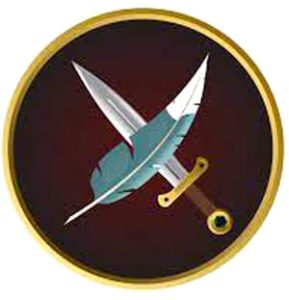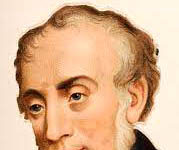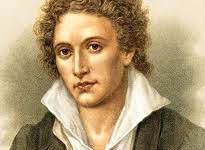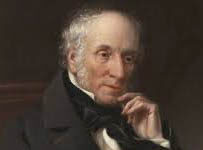Literature and Sword: A Comparative Exploration of Their Power
Literature and Sword: A Comparative Exploration of Their Power
Literature and Sword: A Comparative Exploration of Their Power
In the grand tapestry of human history, two potent forces have shaped destinies and ignited movements: the power of literature and the power of the sword. These forces, like two contrasting colors in a vivid painting, have woven intricate narratives that have shaped societies, influenced minds, and altered the course of nations. As we delve into their realms, it becomes apparent that the power they wield, though distinct, is equally transformative, each possessing the ability to leave indelible marks upon the annals of time.
Imagine literature as an artist’s palette, where words become colors that paint vivid scenes upon the canvas of the mind. The power of literature resides in its ability to wield persuasion and spark the imagination. Through the eloquence of pens, authors have crafted narratives that evoke empathy, inspire revolutions, and shape ideologies. Just as a skilled artisan weaves intricate patterns, Harriet Beecher Stowe’s “Uncle Tom’s Cabin” wove a narrative that exposed the horrors of slavery, igniting the abolitionist movement. This literary masterpiece, like a weaver’s skillful hand, painted a vivid picture of the plight of the enslaved, ultimately contributing to the moral transformation of society.
Imagine the sword as an emblem of power, symbolizing the authority to shape the physical world. The power of the sword lies in its ability to enforce change through force, to protect ideals and territories, and to alter the course of history in a decisive stroke. Just as a blacksmith forges steel into an instrument of might, the legendary sword Excalibur symbolizes King Arthur’s sovereignty and his divine right to rule. This mythic weapon, like a blacksmith’s creation, became a conduit of authority that not only defended the realm but also shaped the destiny of Camelot.
Literature functions as a whisper that resonates across generations, quietly shaping perspectives and ideologies. Just as a gentle breeze rustle leaves, Leo Tolstoy’s “War and Peace” rustled the pages of history with its exploration of the human condition during war. The narrative, like a melodious breeze, carried profound insights into the nature of conflict and humanity’s interconnectedness, inspiring readers to contemplate the futility of war and advocate for peaceful coexistence.
The sword, on the other hand, is the roar of conquest, the thunderous proclamation of dominion and change. Just as thunder resonates through the skies, the sword of Alexander the Great resounded as he carved an empire across continents. His sword, akin to a resonating echo, declared his authority and marked the boundaries of his vast conquests, leaving an enduring imprint on the landscape of history.
Literature invites readers on a journey of introspection, akin to a lantern guiding through the labyrinth of thoughts. Just as a lantern’s light reveals hidden paths, Franz Kafka’s “The Metamorphosis” illuminated the complexity of human existence and alienation. Kafka’s narrative, like a guiding lantern, led readers through the labyrinth of an identity crisis, prompting contemplation on the existential nature of life itself.
The sword acts as the impetus for revolution, the spark that ignites the fires of change. Just as a spark sets a forest ablaze, Joan of Arc’s sword ignited the flames of the Hundred Years’ War as she rallied her troops against the English. Her sword, much like a blazing torch, symbolized her commitment to liberation and inspired the French forces to defy the odds and reclaim their sovereignty.
Literature serves as a portal to empathy, a bridge that connects diverse hearts and minds. Just as a bridge unites distant shores, Harper Lee’s “To Kill a Mockingbird” bridged gaps in understanding by shedding light on racial inequality. The narrative, like a sturdy bridge, facilitated the crossing of perspectives, fostering empathy and encouraging readers to confront societal prejudices.
The sword acts as a determiner of destiny, a decisive tool that shapes the fates of individuals and nations. Just as a key unlocks a treasure chest, the sword of Charlemagne unlocked the gates to a vast empire during the Carolingian Renaissance. His sword, akin to a symbolic key, unlocked doors to unity and cultural revival, changing the course of European history.
In conclusion, the power of literature and the power of the sword, like two threads intertwined in the grand tapestry of human experience, possess distinct qualities that shape destinies in their own right. Literature whispers, persuades, invites introspection, and bridges empathy, while the sword roars, enforces change, ignites revolutions, and determines destinies. As history’s loom weaves these threads together, the true power emerges from their synergy, reminding us that the influence of words and the force of action are both vital elements that create the mosaic of human history. 0 0 0. Literature and Sword
Literature and Sword: A Comparative Exploration of Their Power
N.B. The article ‘Literature and Sword: A Comparative Exploration of Their Power’ originally belongs to the book ‘The Origin Evolution & Functions of Literature‘ by Menonim Menonimus. Literature and Sword
Books of Literary Criticism by M. Menonimus:
- World Short Story Criticism
- World Poetry Criticism
- World Drama Criticism
- World Novel Criticism
- World Essay Criticism
- Indian English Poetry Criticism
- Indian English Poets and Poetry Chief Features
- Emily Dickinson’s Poetry-A Thematic Study
- Walt Whitman’s Poetry-A Thematic Study
- Critical Essays on English Poetry
- Tawfiq al-Hakim’s Novel: Return of the Spirit-An Analytical Study
- Tawfiq al-Hakim’s Novel: ‘Yawmiyyat Naib Fil Arayaf’-An Analytical Study
- Analytical Studies of Some Arabic Short Stories
- A Brief History of Arabic Literature: Pre-Islamic Period (500 AD-622 AD)
- A Brief History of Arabic Literature: Early Islamic Period (622 AD-661 AD)
- Reviews on William Shakespeare’s Works
- Reviews of Charles Dickens’ Works
- Reviews of John Milton’s Literary Works
- Reviews of Some Iconic Travelogues
- Shakespeare’s Sonnets-Critical Studies
- Analytical Studies of Selected Poems of Sarojini Naidu
- Analytical Studies of Selected Poems of Rabindranath Tagore
- Analytical Studies of Selected Indian English Poems
- Reviews of Selected Motivational Books
- Origin Evolution & Functions of Literature …
Additional Searches::











